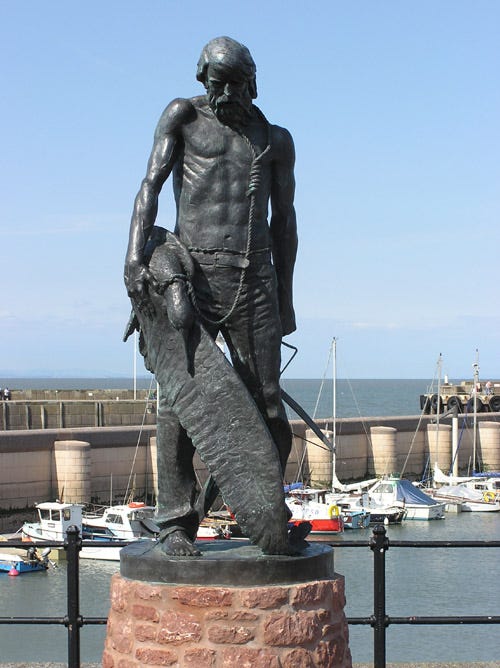Editor’s note: For context, “Science Mike” in the following excerpt refers to Mike McHargue, former host of the podcast Ask Science Mike who recounts his deconversion to atheism followed by an eventual return to Christian faith in his book Finding God in the Waves.
During his own tortured period of a conflict between faith and doubt, the poet Samuel Taylor Coleridge (1772–1834)—most famous for authoring “The Rime of the Ancient Mariner”—wrote that he “had too much Vanity to be altogether a Christian” but “too much tenderness of Nature to be utterly an Infidel.” As a modern man, Coleridge could derive pleasure from reading the skepticism of Voltaire. But he also acknowledged that “my Heart forced me to admire the beauty of Holiness in the Gospel [and] forced me to love the Jesus, whom my Reason . . . would not permit me to worship.”
Coleridge sought shelter, as did Science Mike, in the mystical tradition, calling it “a pillar of fire” during his wandering so he never perished in “the sandy deserts of utter unbelief.” Eventually, he returned to a more robust Christian faith. While Coleridge did not think faith was entirely voluntary or involuntary, he did believe we can “cultivate such habits of thinking and acting, as will give force and effective Energy to the arguments on either side.” I will return to the theme of cultivated habits momentarily.
C. S. Lewis describes a similar experience. Describing his brief but tortured time between faith and unbelief, he writes, “The two hemispheres of my mind were in the sharpest contrast. On the one side a many-sided sea of poetry and myth; on the other a glib and shallow ‘rationalism.’ Nearly all that I loved I believed to be imaginary; nearly all that I believed to be real I thought grim and meaningless.” For both Lewis and Coleridge, the road back to faith came not primarily by a suprarational experience but by God’s use of beauty, poetry, and literature to kindle the imagination for something more than a lonely, God-stripped universe. Art became an ark in which to weather stormy seas between the lands of doubt and dogmatism.
— Joshua M. McNall (PhD, University of Manchester) is associate professor of pastoral theology, ambassador of church relations, and director of the honors program at Oklahoma Wesleyan University. He is the author of The Mosaic of Atonement: An Integrated Approach to Christ’s Work, Long Story Short: The Bible in Six Simple Movements, and A Free Corrector: Colin Gunton and the Legacy of Augustine.
Find Perhaps: Reclaiming the Space Between Doubt and Dogmatism at Amazon, InterVarsity Press, and other major booksellers.
* The above excerpt is taken from Perhaps: Reclaiming the Space Between Doubt and Dogmatism. Copyright © 2021 by Joshua M. McNall. Published by InterVarsity Press, Downers Grove, IL. www.ivpress.com.
* This is a sponsored post.










